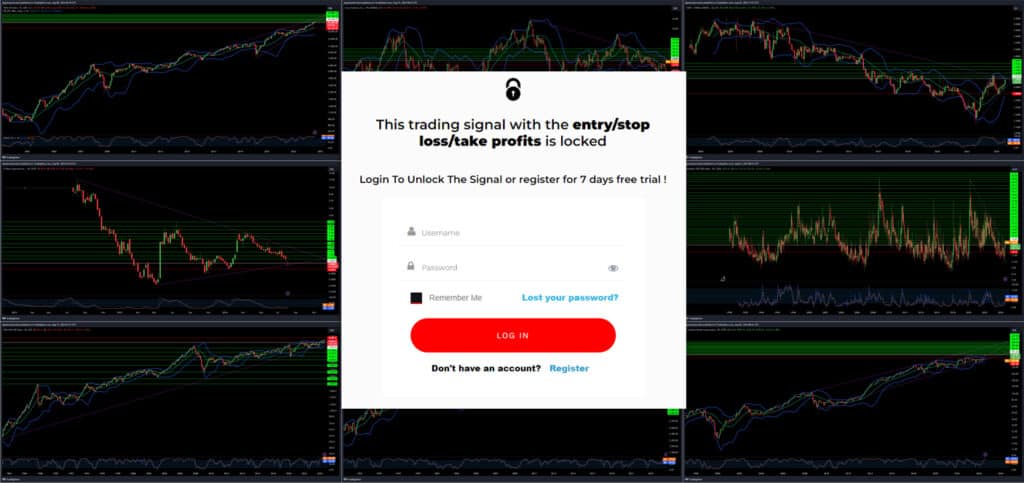In times of financial crises, the impact on stock markets can be far-reaching, causing economic turmoil that affects both individuals and businesses. The stock market serves as a barometer of investor sentiment, reflecting the collective confidence or concern about the state of the economy. When financial crises strike, investments are often hit hard, leading to significant volatility and uncertainty in the market.
One recent example of the ripple effect of a financial crisis on stock markets can be seen in the case of Newcastle United, a renowned football club backed by the Saudi sovereign wealth fund. The club’s financial constraints, highlighted by a £73 million loss for the 2022/2023 season, have forced them to consider selling their top players to alleviate the strain. This has raised questions about the team’s future direction, as well as the stability of manager Eddie Howe’s role.
Key Takeaways:
- Financial crises have a significant impact on stock markets and investments.
- Volatility and uncertainty often increase during times of economic turmoil.
- Newcastle United’s financial challenges exemplify the effects of a financial crisis on a sports club.
- Investors must carefully navigate the risks and opportunities presented by financial crises.
- Understanding the dynamics of stock markets during financial crises is crucial for successful investing.
Newcastle’s Financial Challenges and Rival Comparisons
Newcastle United, one of the prominent football clubs in England, is facing significant financial constraints that have put them at a disadvantage compared to their Premier League rivals. Despite a £70 million rise in turnover to £250 million for the previous season, the club’s chief executive, Darren Eales, acknowledges that they still have a long way to go to compete with the top six teams in the Premier League.
In comparison, the likes of Tottenham Hotspur reported a revenue of £440 million, while Manchester City’s latest accounts showed an impressive £710 million. These figures highlight the stark revenue gap between Newcastle and the top clubs in the league.
Eales emphasizes the urgent need for Newcastle United to substantially grow their revenues to catch up with their rivals. Without a significant increase in revenue, it will be challenging for the club to achieve their long-term goals.
Rival Comparisons
To further illustrate the financial challenges faced by Newcastle United, here is a comparison of their revenue with two top Premier League clubs:
| Club | Revenue (in millions) |
|---|---|
| Newcastle United | £250 |
| Tottenham Hotspur | £440 |
| Manchester City | £710 |
Table: Revenue Comparison Among Premier League Clubs
The revenue disparity between Newcastle United and their top rivals highlights the financial obstacles they must overcome to compete at the highest level. Achieving financial growth is crucial for the club’s sustainability and progress on and off the field.
The Impact of Financial Crises on Newcastle’s Transfer Market Activity
Despite Newcastle United’s significant spending on players since the Saudi-backed takeover, their ability to further invest in the transfer market has been hampered by financial fair play (FFP) constraints. To comply with FFP regulations, clubs must limit their losses, which can be achieved by selling key assets to free up funds.
Rumors have circulated about potential targets for other clubs, including Sven Botman, Bruno Guimaraes, and Alexander Isak. Newcastle must balance their short-term needs with their long-term goals to make strategic decisions regarding player sales and investments.
Managing finances within the limitations of FFP requires careful consideration of the team’s overall financial health and their ambitions for success. Player sales can generate revenue that can be reinvested to strengthen the squad or fulfill other financial obligations.
“Financial fair play is a significant factor in the current transfer market landscape. Clubs must navigate the constraints to ensure they are on a sustainable financial path while also maintaining competitiveness on the pitch.” – Football Finance Expert
The Impact of Player Sales
Player sales can have a profound effect on the team’s dynamic and future prospects. The departure of key players may disrupt team chemistry and require a reevaluation of tactics and playing style. However, it can also provide an opportunity for emerging talents to step up and prove themselves.
Strategic investments using the funds generated from player sales can strengthen weaker areas of the squad or bring in new talent that aligns with the team’s long-term vision. Newcastle United must carefully analyze potential transfer targets and negotiate deals that maximize the impact of their limited resources.
Long-Term Planning and Financial Stability
To secure the club’s financial stability and compliance with FFP, Newcastle United must adopt a long-term planning approach. This involves smart investments that balance short-term objectives, such as avoiding relegation, with the ambitious goal of competing for European qualification.
By identifying talents with high potential and focusing on player development, the club can build a sustainable and competitive squad. Establishing a robust scouting and recruitment system is crucial to identifying undervalued players who can thrive under the right coaching and support.
In Summary
Financial crises and FFP constraints have necessitated careful financial management and player sales for Newcastle United. While the limitations may initially pose challenges, strategic decisions and investments can steer the club towards stability and success. By balancing short-term needs with long-term goals, Newcastle can navigate the complex transfer market landscape and build a sustainable and competitive team.
Eddie Howe’s Future as Newcastle Manager
Despite Newcastle’s recent poor form and drop in the Premier League table, Chief Executive Darren Eales expressed unwavering support for manager Eddie Howe. Eales highlighted Howe’s pivotal role in leading the club away from the relegation zone in his first season, a remarkable achievement considering the circumstances. Under Howe’s guidance, Newcastle defied expectations and secured a place in the prestigious Champions League, surpassing formidable teams like Liverpool, Tottenham, and Chelsea.
Eales emphasized the immense value of Howe’s contribution to the club’s progression on the pitch. Recognizing the challenges that accompany rebuilding a team, Eales acknowledged the need for patience and trust in Howe’s managerial abilities. The club’s recent struggles are not indicative of Howe’s expertise or his commitment to steering Newcastle toward success.
As Newcastle faces the undeniable pressure of the relegation zone, Eales remains confident in Howe’s leadership and strategic acumen. He firmly believes that Howe’s experience, tactical brilliance, and ability to galvanize the squad will guide the team out of this slump and restore them to their former glory.
In these challenging times, it is crucial to remember the profound impact that Eddie Howe has had on Newcastle United. His unwavering dedication and unyielding passion for the club are unmatched, an invaluable asset that cannot be underestimated in the pursuit of future triumphs.
“Eddie Howe’s contribution to Newcastle cannot be overstated. He has not only transformed our performance on the pitch but has instilled a winning mentality that will bear fruit in the long run.” – Darren Eales
Financial Crises’ Effect on Stock Markets and Global Shipping Costs
The Red Sea crisis has created significant disruptions in shipping routes, resulting in a ripple effect on global freight rates. Attacks in the Red Sea have prompted container ships to divert from the Suez Canal, impacting trade between Asia, Europe, and the US.
This disruption has caused shipping costs to surge, leading to concerns about increased inflation if transportation costs continue to rise. The economic impact of the Red Sea crisis remains uncertain, with its severity dependent on the duration of the crisis.
JPMorgan warns that rising shipping costs could hinder the ongoing fight against inflation in the coming months.
Impact on Global Trade
The Red Sea crisis has directly affected global trade, particularly in the regions of Asia, Europe, and the US. As container ships are forced to take longer routes to avoid the affected areas, shipping times have increased, causing delays in the delivery of goods.
“The diversion of container ships from the Suez Canal has disrupted supply chains and significantly affected trade between major economic regions.”
The prolonged disruptions in shipping routes have also led to increased shipping costs for businesses involved in global trade. This has not only impacted importers and exporters but has also created challenges for domestic industries heavily reliant on international supply chains.
The Fight Against Inflation
As shipping costs rise, there are growing concerns about their impact on inflation rates. Higher transportation costs can lead to increased prices for imported goods, further fueling inflationary pressures.
To combat inflation, central banks employ various strategies, including controlling interest rates and regulating the money supply. However, the rise in shipping costs poses a challenge to these efforts, potentially hindering the fight against inflation.
It is crucial for policymakers to closely monitor the situation and assess the potential impact of rising shipping costs on inflation dynamics.
| Affected Regions | Disruptions | Consequences |
|---|---|---|
| Asia | Increased shipping times, higher costs | Delays in imports and exports, rising inflationary pressures |
| Europe | Alternative shipping routes, longer delivery times | Disrupted supply chains, increased shipping costs |
| United States | Import delays, rising shipping expenses | Challenges for businesses reliant on international trade |
Conclusion
Financial crises have a profound impact on stock markets, as seen in the recent developments at Newcastle United and the global shipping industry. The financial challenges faced by Newcastle, such as financial fair play constraints and the possibility of selling key players, underscore the intricate relationship between finances and team performance. Similarly, the disruptions in shipping routes due to the Red Sea crisis have resulted in higher shipping costs and potential consequences for inflation and the global economy. Recognizing the intricate dynamics of financial crises and their ripple effect on stock markets is essential for investors and policymakers alike.
The situation at Newcastle United highlights the way financial constraints can influence a club’s ability to compete and invest in players. Navigating financial fair play regulations while striving for success poses a unique set of challenges for clubs operating in a competitive landscape. Similarly, the disruptions in global shipping routes underscore the vulnerability of supply chains and the potential repercussions on trade and inflation. These examples highlight the need for a comprehensive understanding of economic dynamics and the impact of financial crises on investments and market stability.
In conclusion, financial crises have far-reaching implications beyond the immediate scope of the industries directly affected. The stock market impact of these crises can have cascading effects throughout the economy, influencing consumer confidence, investment decisions, and overall market stability. As we navigate an increasingly interconnected global economy, it is crucial for investors and policymakers to analyze and adapt to the changing dynamics of financial crises, ensuring a robust and resilient financial system that can withstand future challenges.
FAQ
What are the financial challenges faced by Newcastle United?
Newcastle United has faced financial constraints, leading to the potential need for selling top players to free up funds. They posted a £73 million loss for the 2022/2023 season, and financial fair play (FFP) constraints have limited their ability to spend in the transfer market.
How does Newcastle United’s revenue compare to their top six rivals in the Premier League?
Despite a £70 million rise in turnover to £250 million, Newcastle United still lags behind their top six rivals. For example, Tottenham reported revenue of £440 million, while Manchester City’s latest accounts showed revenue of £710 million.
What impact do financial fair play constraints have on Newcastle’s transfer market activity?
Due to financial fair play (FFP) constraints, Newcastle United must limit their losses, which may require them to sell key players to free up funds. This has affected their ability to further invest in the transfer market.
What is the future of manager Eddie Howe at Newcastle United?
Despite Newcastle United’s recent poor form, Chief Executive Darren Eales expressed support for manager Eddie Howe. Howe’s role in leading the club away from the relegation zone in his first season and qualifying for the Champions League has been highlighted. Eales expressed hope that Howe would continue to be part of the team’s future.
How does the Red Sea crisis impact shipping costs and global trade?
The disruptions in shipping routes caused by the Red Sea crisis have resulted in an increase in shipping costs. This has had a ripple effect on global trade between Asia, Europe, and the US, raising concerns about potential inflation if transportation costs continue to rise.
What is the connection between financial crises, stock markets, and global shipping costs?
The financial challenges faced by Newcastle United and the disruptions in shipping routes due to the Red Sea crisis demonstrate the impact of financial crises on stock markets. The interplay between finances and team performance at Newcastle United mirrors the potential implications of the Red Sea crisis on shipping costs and the global economy. Understanding these dynamics is crucial for investors and policymakers.
Source Links
- https://www.nbcconnecticut.com/news/national-international/red-sea-crisis-could-jeopardize-inflation-fight-as-shipping-costs-spike-globally/3190779/
- https://sports.yahoo.com/newcastle-not-immune-having-sell-155324146.html
- https://news.yahoo.com/turkey-bulgaria-romania-team-clear-154426925.html
Disclaimer
All information on this website is of a general nature. The information is not adapted to conditions that are specific to your person or entity. The information provided can not be considered as personal, professional or legal advice or investment advice to the user.
This website and all information is intended for educational purposes only and does not give financial advice. Signal Mastermind Signals is not a service to provide legal and financial advice; any information provided here is only the personal opinion of the author (not advice or financial advice in any sense, and in the sense of any act, ordinance or law of any country) and must not be used for financial activities. Signal Mastermind Signals does not offer, operate or provide financial, brokerage, commercial or investment services and is not a financial advisor. Rather, Signal Mastermind Signals is an educational site and a platform for exchanging Forex information. Whenever information is disclosed, whether express or implied, about profit or revenue, it is not a guarantee. No method or trading system ensures that it will generate a profit, so always remember that trade can lead to a loss. Trading responsibility, whether resulting in profits or losses, is yours and you must agree not to hold Signal Mastermind Signals or other information providers that are responsible in any way whatsoever. The use of the system means that the user accepts Disclaimer and Terms of Use.
Signal Mastermind Signals is not represented as a registered investment consultant or brokerage dealer nor offers to buy or sell any of the financial instruments mentioned in the service offered.
While Signal Mastermind Signals believes that the content provided is accurate, there are no explicit or implied warranties of accuracy. The information provided is believed to be reliable; Signal Mastermind Signals does not guarantee the accuracy or completeness of the information provided. Third parties refer to Signal Mastermind Signals to provide technology and information if a third party fails, and then there is a risk that the information may be delayed or not delivered at all.
All information and comments contained on this website, including but not limited to, opinions, analyzes, news, prices, research, and general, do not constitute investment advice or an invitation to buy or sell any type of instrument. Signal Mastermind Signals assumes no responsibility for any loss or damage that may result, directly or indirectly, from the use or dependence on such information.
All information contained on this web site is a personal opinion or belief of the author. None of these data is a recommendation or financial advice in any sense, also within the meaning of any commercial act or law. Writers, publishers and affiliates of Signal Mastermind Signals are not responsible for your trading in any way.
The information and opinions contained in the site are provided for information only and for educational reasons, should never be considered as direct or indirect advice to open a trading account and / or invest money in Forex trading with any Forex company . Signal Mastermind Signals assumes no responsibility for any decisions taken by the user to create a merchant account with any of the brokers listed on this website. Anyone who decides to set up a trading account or use the services, free of charge or paid, to any of the Broker companies mentioned on this website, bears full responsibility for their actions.
Any institution that offers a service and is listed on this website, including forex brokers, financial companies and other institutions, is present only for informational purposes. All ratings, ratings, banners, reviews, or other information found for any of the above-mentioned institutions are provided in a strictly objective manner and according to the best possible reflection of the materials on the official website of the company.
Forex/CFD trading is potentially high risk and may not be suitable for all investors. The high level of leverage can work both for and against traders. Before each Forex/CFD investment, you should carefully consider your goals, past experience and risk level. The opinions and data contained on this site should not be considered as suggestions or advice for the sale or purchase of currency or other instruments. Past results do not show or guarantee future results.
Neither Signal Mastermind Signals nor its affiliates ensure the accuracy of the content provided on this Site. You explicitly agree that viewing, visiting or using this website is at your own risk.




